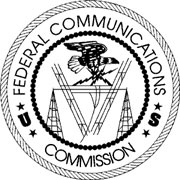|
|
|
FCC Chair Seeks To Move Telecom Merger Forward
Breaking Legal News |
2006/12/02
|
| Federal Communications Commission (FCC) Chairman Kevin Martin has asked the FCC general counsel to consider whether one commissioner with a potential conflict of interest may be allowed to consider a proposed $82.2 billion merger of BellSouth and AT&T. The merger has been delayed three times as the proposal has failed to gain approval from a majority of the five FCC commissioners. Republicans hold a 3-2 advantage, but voting has been deadlocked at 2-2 as Republican Commissioner Robert McDowell, a former lobbyist, recused himself from voting due a conflict of interest. Martin took steps to break the stalemate Friday, notifying Congress of his petition to the FCC general counsel. Title 18, Section 208 (b) of the US Code would allow the general counsel to reinstate McDowell if "the interest of the Government in the employee's participation outweighs the concern that a reasonable person may question the integrity of the agency's programs and operations." The merger has already been approved without reservation by the US Department of Justice Antitrust Division following an eight-month investigation that concluded that AT&T's proposed acquisition of BellSouth was not likely to "substantially reduce competition" in the US telecom market. In an October letter, the Democratic FCC commissioners said that serious questions remained about whether the merger would serve the public interest, especially against the backdrop of other forms of consolidation and concentration in the telecommunications industry. |
|
|
|
|
|
|
Class action or a representative action is a form of lawsuit in which a large group of people collectively bring a claim to court and/or in which a class of defendants is being sued. This form of collective lawsuit originated in the United States and is still predominantly a U.S. phenomenon, at least the U.S. variant of it. In the United States federal courts, class actions are governed by Federal Rules of Civil Procedure Rule. Since 1938, many states have adopted rules similar to the FRCP. However, some states like California have civil procedure systems which deviate significantly from the federal rules; the California Codes provide for four separate types of class actions. As a result, there are two separate treatises devoted solely to the complex topic of California class actions. Some states, such as Virginia, do not provide for any class actions, while others, such as New York, limit the types of claims that may be brought as class actions. They can construct your law firm a brand new website and help you redesign your existing law firm site to secure your place in the internet. |
Law Firm Directory
|
|





